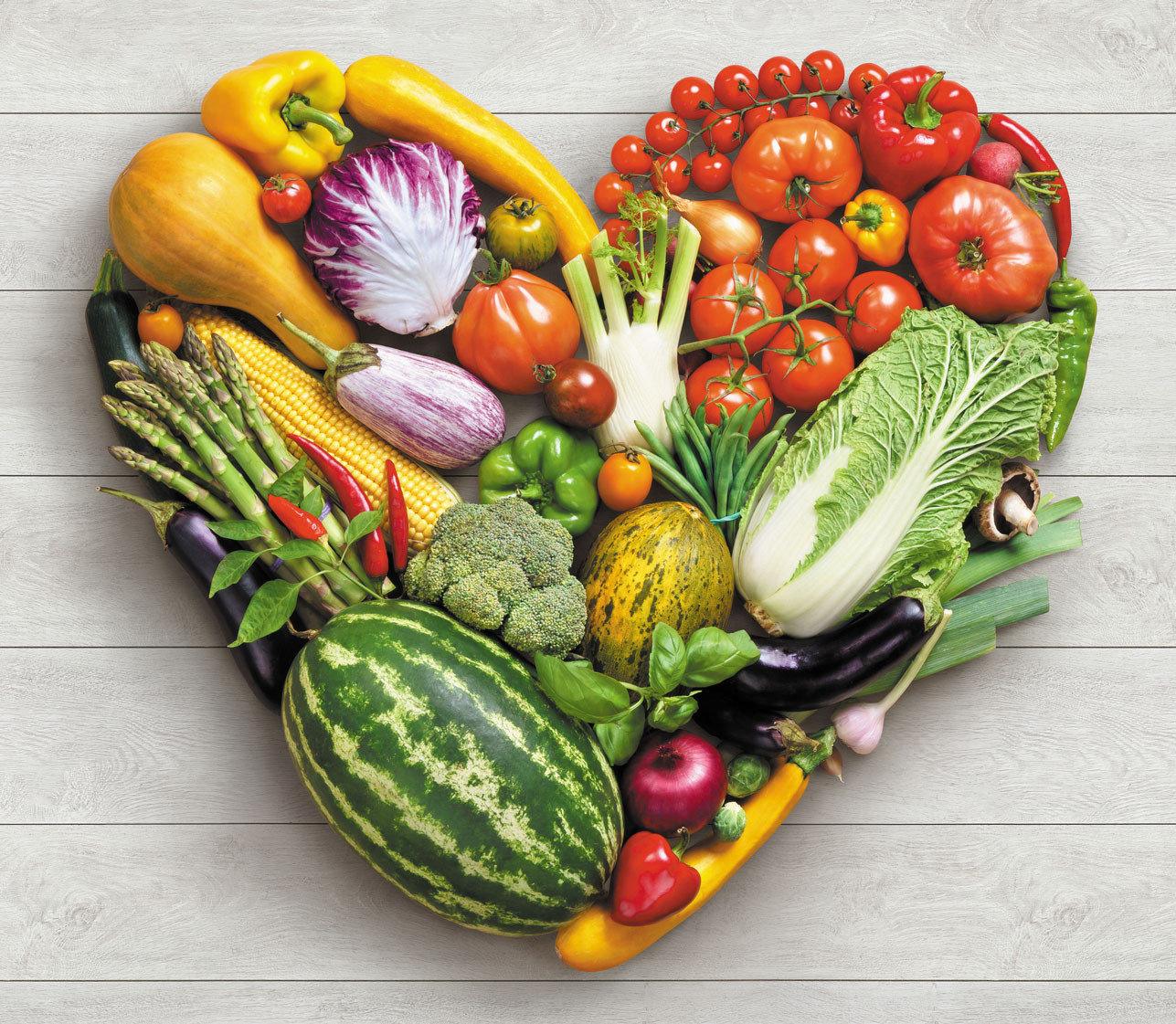Plant Based Beef vs. Traditional Meat: Which Is Better for the Environment?
Plant Based Beef vs. Traditional Meat: Which Is Better for the Environment?
Blog Article
Everything About Healthy Food: Advantages of Embracing Plant Based Options
The conversation bordering plant-based diet regimens has acquired significant attention recently. Several people are discovering the prospective health and wellness benefits, dietary advantages, and ecological influences related to these dietary options. As individuals come to be a lot more mindful of their food's impact on wellness and sustainability, concerns develop regarding the functionalities of adopting such a way of life. What particular changes can one anticipate, and exactly how might these options reshape not just individual health yet also the earth's future?
Comprehending Plant-Based Diets
Many individuals associate plant-based diet regimens primarily with vegetarianism or veganism, these diet regimens can include a vast variety of consuming patterns that prioritize entire, minimally processed plant foods. Such diet regimens often consist of fruits, veggies, whole grains, seeds, nuts, and legumes, while removing or limiting pet products. This adaptability allows individuals to customize their nutritional options according to individual preferences and nutritional demands. Some may take on a primarily plant-based diet plan while still periodically consuming meat or dairy, usually referred to as a flexitarian technique. The emphasis continues to be on incorporating more plant foods, which can cause a varied array of tastes and dishes. Recognizing these various interpretations of plant-based consuming is essential for appreciating its access and appeal in contemporary food culture.
Health And Wellness Advantages of Plant-Based Foods
The health and wellness advantages of plant-based foods are considerable, providing a nutrient thickness benefit that sustains overall well-being. Study shows that these foods can boost heart wellness and play an important role in efficient weight monitoring. By including much more plant-based choices, individuals may improve their dietary options and advertise lasting health and wellness.
Nutrient Thickness Benefit
Nutrient thickness plays a crucial duty in the wellness advantages of plant-based foods, making them an engaging selection for those looking for a balanced diet. Plant-based foods, such as fruits, vegetables, vegetables, nuts, and whole grains, are frequently rich in essential vitamins, minerals, and anti-oxidants while being reduced in calories. This high nutrient density allows people to consume fewer calories while still fulfilling their dietary requirements. Furthermore, these foods are packed with dietary fiber, advertising digestive system wellness and assisting in weight monitoring. By integrating nutrient-dense plant-based options, customers can boost their total health and wellness, support their body immune systems, and reduce the danger of chronic diseases. Inevitably, the nutrient thickness of plant-based foods emphasizes their value in a health-conscious way of life.
Heart Health Enhancement

Weight Management Support
Along with promoting heart wellness, a plant-based diet plan can significantly aid in weight monitoring. This dietary approach stresses entire foods such as fruits, vegetables, vegetables, nuts, and entire grains, which are normally lower in calories and higher in fiber compared to animal-based items. The high fiber web content assists enhance satiation, decreasing total calorie intake. Plant-based diets are often rich in crucial nutrients while low in harmful fats, making it much easier to keep a healthy weight. Research study shows that individuals that take on a plant-based lifestyle have a tendency to have reduced body mass indexes (BMIs) and experience more effective weight management compared to those who eat meat-heavy diets. As a result, welcoming plant-based alternatives is a strategic selection for reliable weight administration
Nutritional Value of Plant-Based Active Ingredients
Plant-based ingredients are rich in vital nutrients, supplying a varied selection of vitamins, minerals, and anti-oxidants that add to general wellness. A comparison of protein resources exposes that while pet products are commonly deemed remarkable, several plant-based choices give ample healthy protein and various other valuable substances. Recognizing the dietary worth of these ingredients can assist individuals make notified dietary choices.
Crucial Nutrients in Plants
Nutrient-rich ingredients located in plants supply a varied variety of important nutrients that add considerably to general health. These active ingredients are abundant in vitamins A, C, and K, which sustain immune function, vision, and blood clot, respectively. Furthermore, plants provide important minerals such as calcium, potassium, and magnesium, vital for heart health, muscle feature, and bone stamina. The presence of fiber in plant-based foods help digestion and promotes a healthy and balanced gut microbiome. Anti-oxidants, discovered perfectly in vegetables and fruits, aid combat oxidative stress and anxiety and lower inflammation. Many plant foods are reduced in calories yet high in nutrients, making them an exceptional option for those seeking to preserve a healthy and balanced weight while making sure perfect nutrient consumption.

Comparing Healthy Protein Resources
Healthy protein sources vary substantially in their dietary accounts, with plant-based components providing unique advantages. Unlike animal healthy proteins, which usually have hydrogenated fats and cholesterol, plant healthy proteins have a tendency to be lower in these unhealthy parts. Legumes, nuts, seeds, and entire grains are abundant in necessary amino acids, fiber, vitamins, and minerals. As an example, lentils offer high protein material alongside substantial iron and folate, while quinoa is a total healthy protein, providing all 9 crucial amino acids. In addition, plant-based proteins are often come with by antioxidants and phytochemicals that support total health and wellness. The shift to plant-based healthy protein resources not only boosts nutritional consumption however additionally lines up with sustainable nutritional practices, minimizing environmental influence and promoting lasting health advantages.
Environmental Impact of Plant-Based Consuming
As awareness of climate adjustment expands, many individuals are discovering sustainable dietary selections that can significantly decrease their environmental footprint. Plant-based eating has actually become a considerable contributor to minimizing greenhouse gas discharges, which are primarily related to animals manufacturing. The growing of fruits, beans, vegetables, and grains typically needs less sources, such as water and land, compared to pet farming. Additionally, plant-based diet plans can cause reduced deforestation, as much less land is required for grazing animals or growing animal feed. By shifting towards Visit Website plant-based choices, consumers can sustain biodiversity and advertise much healthier ecological communities. In general, accepting plant-based eating not only benefits personal health however also stands for a crucial action towards ecological sustainability and preservation initiatives.
Overcoming Common Misconceptions
While lots of people identify the advantages of a plant-based diet plan, a number of misunderstandings frequently hinder them from totally accepting from this source this lifestyle. A typical idea is that plant-based diet regimens lack adequate healthy protein; however, countless plant sources, such as beans, nuts, and tofu, give adequate protein. Furthermore, some presume that this diet regimen is pricey, when actually, staples like beans, rice, and seasonal vegetables can be quite inexpensive. Another misunderstanding is that plant-based eating is extremely limiting, whereas it actually offers a diverse range of foods and tastes. Lastly, many stress that a plant-based diet plan may lead to deficiencies, yet with correct planning, people can acquire all needed nutrients, including minerals and vitamins, while appreciating a wide range of scrumptious meals.
Tips for Transitioning to a Plant-Based Way of life
Making the change to a plant-based lifestyle can be an enhancing experience, though it typically requires some support to browse the preliminary modifications. First, people are urged to start progressively, incorporating more fruits, veggies, legumes, and whole grains right into their dishes while decreasing meat and milk consumption. Dish preparation is crucial; preparing a weekly menu can help relieve the change and stop final harmful choices. Exploring new dishes and cooking approaches can also improve the experience and preserve exhilaration concerning plant-based eating. Additionally, joining support groups or neighborhoods can provide motivation and share important suggestions. Lastly, remaining educated concerning nourishment warranties well balanced dishes, protecting against shortages while cultivating a healthy and balanced, enjoyable plant-based lifestyle.
Delicious Plant-Based Meal Concepts
Exploring tasty plant-based dish ideas can inspire people to embrace a much more nourishing diet. One popular alternative is a passionate quinoa salad, featuring cherry tomatoes, cucumber, and a spicy lemon-tahini clothing. Another favorite is a mouthwatering lentil stew, loaded with carrots, celery, and fragrant herbs, best for a soothing supper. For breakfast, overnight oats made with almond milk, chia seeds, and topped with fresh berries supply a nourishing beginning to the day. In addition, a dynamic veggie stir-fry with tofu and a variety of vibrant veggies can be a fast yet pleasing dish. Velvety avocado toast on whole-grain bread, sprinkled with seasonings and seeds, provides a basic yet savory treat. These dishes display the selection and richness of plant-based eating.

Regularly Asked Inquiries
Can a Plant-Based Diet Plan Provide Sufficient Protein?
The question of whether a plant-based diet regimen can offer sufficient protein prevails. Numerous sources, including vegetables, nuts, seeds, and entire grains, can satisfy protein requires efficiently, sustaining a well balanced and nourishing diet plan for individuals.
Are Plant-Based Diet Plans Ideal for Kid?
The suitability of plant-based diet plans for children depends upon careful planning. Adequate nutrients need to be guaranteed, including proteins, minerals, and vitamins. With proper support, such diet plans can support healthy and balanced growth and development in youngsters.
Exactly how Do I Eat in restaurants on a Plant-Based Diet plan?
Eating out on a plant-based diet includes looking for restaurants with varied menus, requesting for modifications, and checking out vegan-friendly options. Planning in advance and connecting dietary choices can boost the dining experience while preserving dietary selections.
What Are Common Allergens in Plant-Based Foods?
Typical irritants in plant-based foods consist of soy, gluten, nuts, and seeds - Plant Based Chicken. People adhering to a plant-based diet ought to be conscious of these allergens and review tags carefully to prevent negative responses and assure safe consumption
Can Plant-Based Diets Help With Fat Burning?
Study indicates that adopting a plant-based diet plan might promote weight loss due to its normally lower calorie density and higher fiber content. This combination can boost satiety, helping individuals handle their calorie consumption successfully. Several individuals link plant-based diet plans generally with vegetarianism or veganism, these diet plans can encompass a broad range of eating patterns that focus on entire, minimally processed plant foods. Nutrient density plays an important role in the health advantages of plant-based foods, making them an engaging choice for those seeking a balanced diet regimen. Plant-based diet regimens have been shown to noticeably enhance heart health and wellness, as they typically include components that sustain cardiovascular function. In addition to advertising heart health, a plant-based diet can substantially assist in weight administration. A common idea is that plant-based diet plans lack enough protein; however, countless plant sources, such official site as legumes, nuts, and tofu, give adequate protein.
Report this page